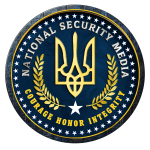UNITED STATES OF AMERICA v. DONALD J. TRUMP,
Defendant. * * * * * * * *
CRIMINAL NO. 23-cr-257 (TSC)
GOVERNMENT’S MOTION FOR IMMUNITY DETERMINATIONS
C. The defendant's efforts, as a candidate, to organize fraudulent electors
- The conduct at issue was unofficial
The defendant’s conduct with respect to the elector scheme is inherently private, and not subject to immunity. See 144 S. Ct. at 2353 n.2 (Barrett, J., concurring in part) (“Sorting private from official conduct sometimes will be difficult but not always. Take the President’s alleged attempt to organize alternative slates of electors. In my view, that conduct is private and therefore not entitled to protection.”). The President of the United States has no official responsibilities related to the organization or voting of electors in the various states-by virtue of the Constitution, that process takes place in the states according to the laws and procedures set forth by each state. See U.S Const., Art. II, § 1, cl. 2. At oral argument before the Supreme Court, the defendant initially conceded that the plan to submit fraudulent electors directed by the defendant and GIULIANI was not official. Tr. of Oral Argument at 29-30; Trump, 144 S. Ct. at 2338. The Government nonetheless sets forth here the context, form, and content of the defendant’s private contacts with RNC Chairwoman RONNAMCDANIEL in furtherance of the fraudulent elector plan because the defendant conversely suggested in the same oral argument that he will argue that those efforts were official. See 144 S. Ct. at 2338.
The defendant had two relevant contacts with RONNAMCDANIEL first, he and co-conspirator JOHNEASTMAN called RONNAMCDANIEL on December 6 to ask her to ensure that the effort was properly coordinated (Superseding Indictment, ECF No. 22653; supra p. 50), and second, on the evening of December 14, RONNAMCDANIEL emailed the defendant through his executive assistant, MOLLYMICHAEL to inform him that the fraudulent electors had cast votes as he had directed (Superseding Indictment, ECF No. 226 66: supra p. 57).
The defendant and JOHNEASTMAN call to RONNAMCDANIEL on December 6 was private. The defendant placed the call along with JOHNEASTMAN a private attorney and co-conspirator, to RONNAMCDANIEL the Chairwoman of a political organization whose objective was to elect a broad set of Republicans at the federal and state level, including the defendant and other allied candidates. JOHNEASTMAN was acting in his capacity as a private attomey for the defendant; on the same day. JOHNEASTMAN emailed with several other private attorneys and wrote, “This is huge – and hugely important. Let’s make sure the various state electors are aware of the absolute necessity of meeting on the 14th, casting their votes, and otherwise complying with the transmittal requirements of federal law.” Finally, the content of the call likewise unofficial. The defendant and JOHNEASTMAN asked RONNAMCDANIEL to work with the Campaign, to ensure that the fraudulent electors were properly organized, which she agreed to do-and did, as is clear from her further contacts with GIULIANI and BORISEPSHTEYN regarding the plan.
RONNAMCDANIEL email to the defendant on December 14 was likewise a private communication; RONNAMCDANIEL simply forwarded the defendant an RNC communication summarizing the electoral vote to inform him that the private task the defendant had given her was complete, and MOLLYMICHAEL confirmed that she had relayed the message by writing, It’s in front of him!” As discussed infra pp. 145-147, when a White House staffer facilitates unofficial conduct by relaying private, political communications, the private action is not converted to an official one simply because an Executive Branch aide helps cay it out.
- Even if the conduct were deemed official, the Government could rebut the presumption of immunity
In any event, even if the defendant’s efforts to convene fraudulent electors could be considered official, the presumption would be rebutted because a President has no legal authority and thus no official capacity to influence how the States appoint their electors. Accordingly, there is no plausible argument for barring prosecution of that alleged conduct. Trump, 144 S. Ct. at 2353 n.2 (Barrett, J., concurring in part). “[W]hile Congress has a limited role [in the appointment of Presidential electors], the President has none.” Id.
Accordingly, applying the criminal law to the defendant’s “alleged attempt to organize alternative slates of electors,” while properly viewed as prosecution for private conduct, see id., implicates no authority or functions of the Executive Branch. Therefore, including such conduct in the defendant’s prosecution poses no danger of intruding on Executive Branch authority or functions. No federal executive function is impaired by applying criminal law to the alleged conduct of privately organizing fraudulent slates of electors.
